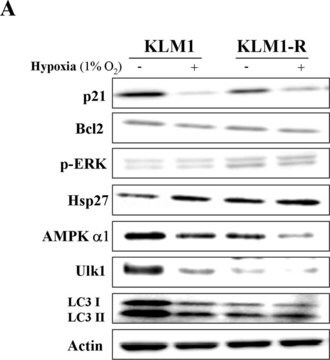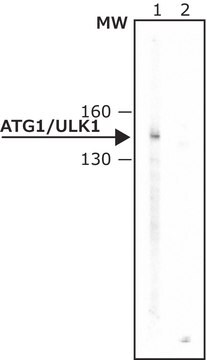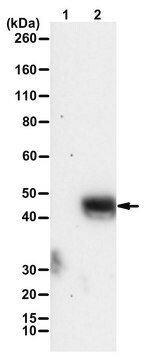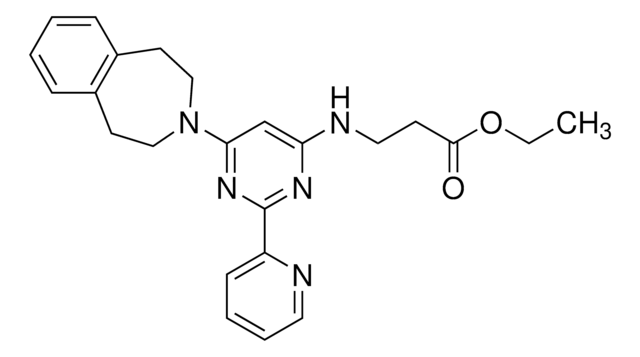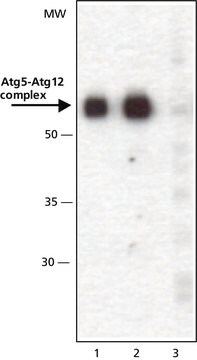ABC213
Anti-phospho ULK1 Antibody (Ser777)
from rabbit, purified by affinity chromatography
Sinonimo/i:
Serine/threonine-protein kinase ULK1, Serine/threonine-protein kinase Unc51.1, Unc-51-like kinase 1
About This Item
Prodotti consigliati
Origine biologica
rabbit
Livello qualitativo
Forma dell’anticorpo
affinity isolated antibody
Tipo di anticorpo
primary antibodies
Clone
polyclonal
Purificato mediante
affinity chromatography
Reattività contro le specie
human
tecniche
inhibition assay: suitable (peptide)
western blot: suitable
N° accesso NCBI
N° accesso UniProt
Condizioni di spedizione
wet ice
modifica post-traduzionali bersaglio
phosphorylation (pSer777)
Descrizione generale
Immunogeno
Applicazioni
Western Blotting/Peptide Inhibition Analysis: 2 µg/mL of this antibody detected phospho ULK1 (Ser777) in 10 µg of A431 cell lysate.
Qualità
Western Blotting Analysis: 2 µg/mL of this antibody detected phospho ULK1 (Ser777) in 10 µg of A431 cell lysate.
Descrizione del bersaglio
Altre note
Non trovi il prodotto giusto?
Prova il nostro Motore di ricerca dei prodotti.
Codice della classe di stoccaggio
12 - Non Combustible Liquids
Classe di pericolosità dell'acqua (WGK)
WGK 1
Punto d’infiammabilità (°F)
Not applicable
Punto d’infiammabilità (°C)
Not applicable
Certificati d'analisi (COA)
Cerca il Certificati d'analisi (COA) digitando il numero di lotto/batch corrispondente. I numeri di lotto o di batch sono stampati sull'etichetta dei prodotti dopo la parola ‘Lotto’ o ‘Batch’.
Possiedi già questo prodotto?
I documenti relativi ai prodotti acquistati recentemente sono disponibili nell’Archivio dei documenti.
Articoli
Autophagy is a highly regulated process that is involved in cell growth, development, and death. In autophagy cells destroy their own cytoplasmic components in a very systematic manner and recycle them.
Il team dei nostri ricercatori vanta grande esperienza in tutte le aree della ricerca quali Life Science, scienza dei materiali, sintesi chimica, cromatografia, discipline analitiche, ecc..
Contatta l'Assistenza Tecnica.